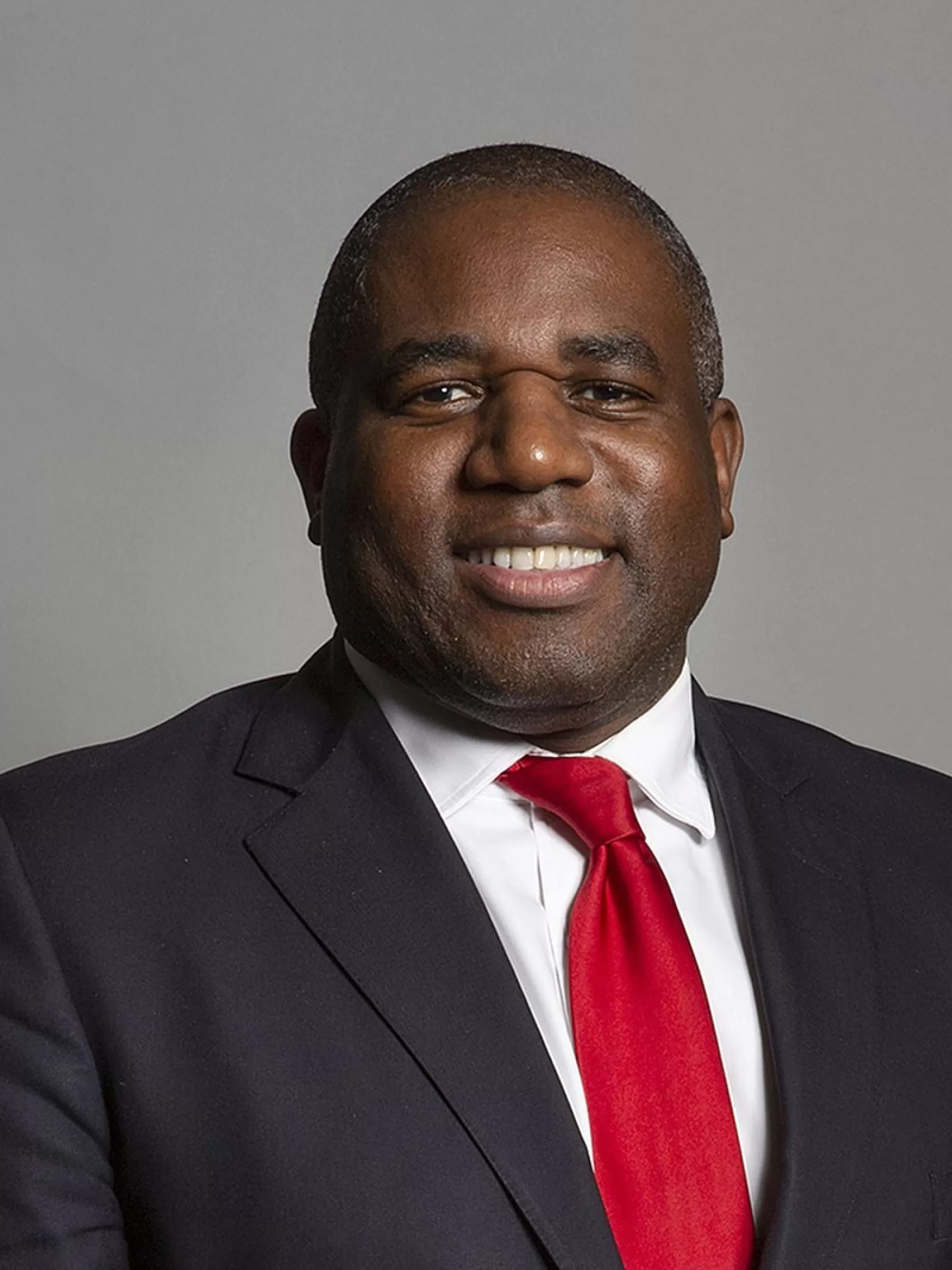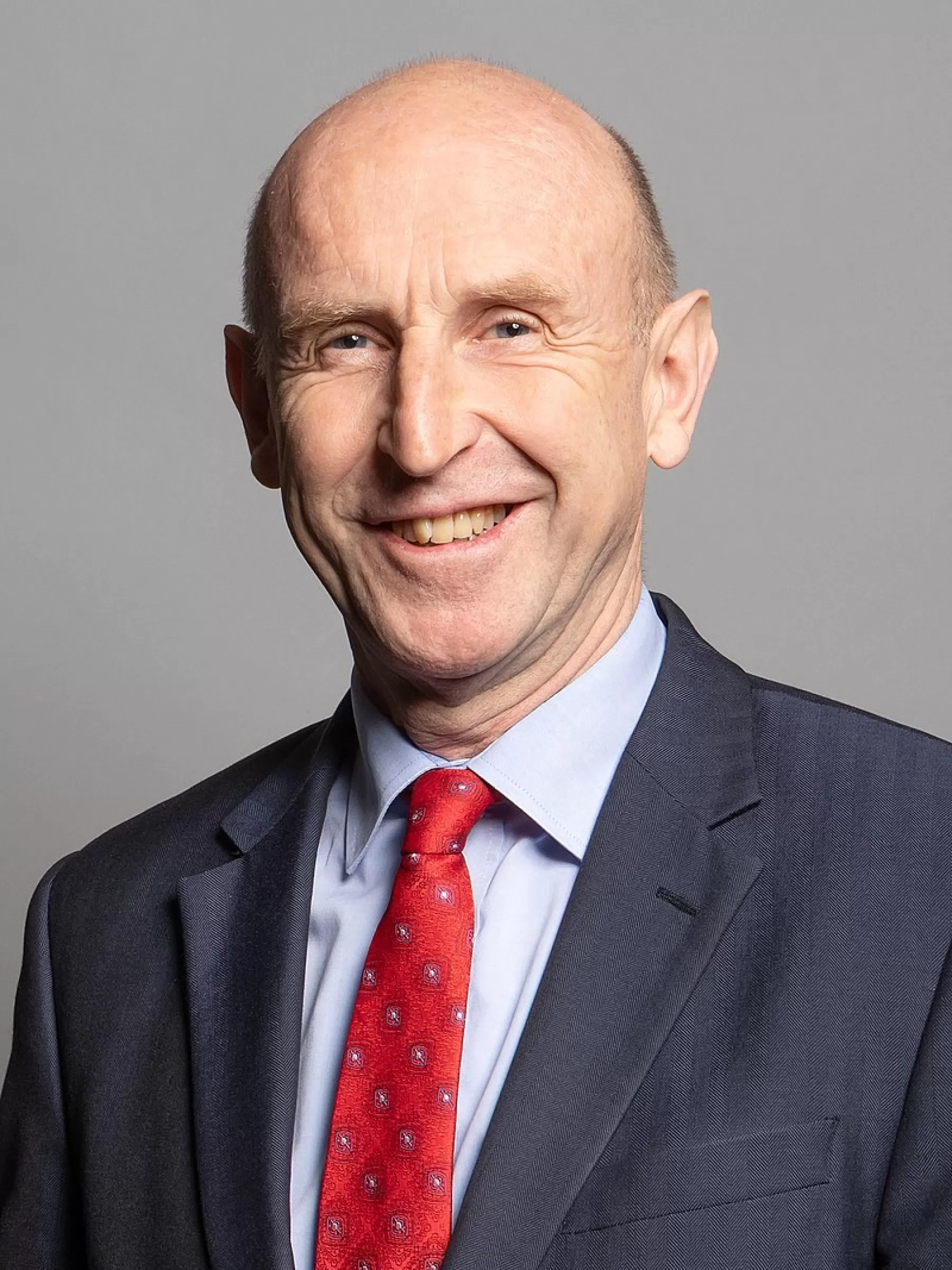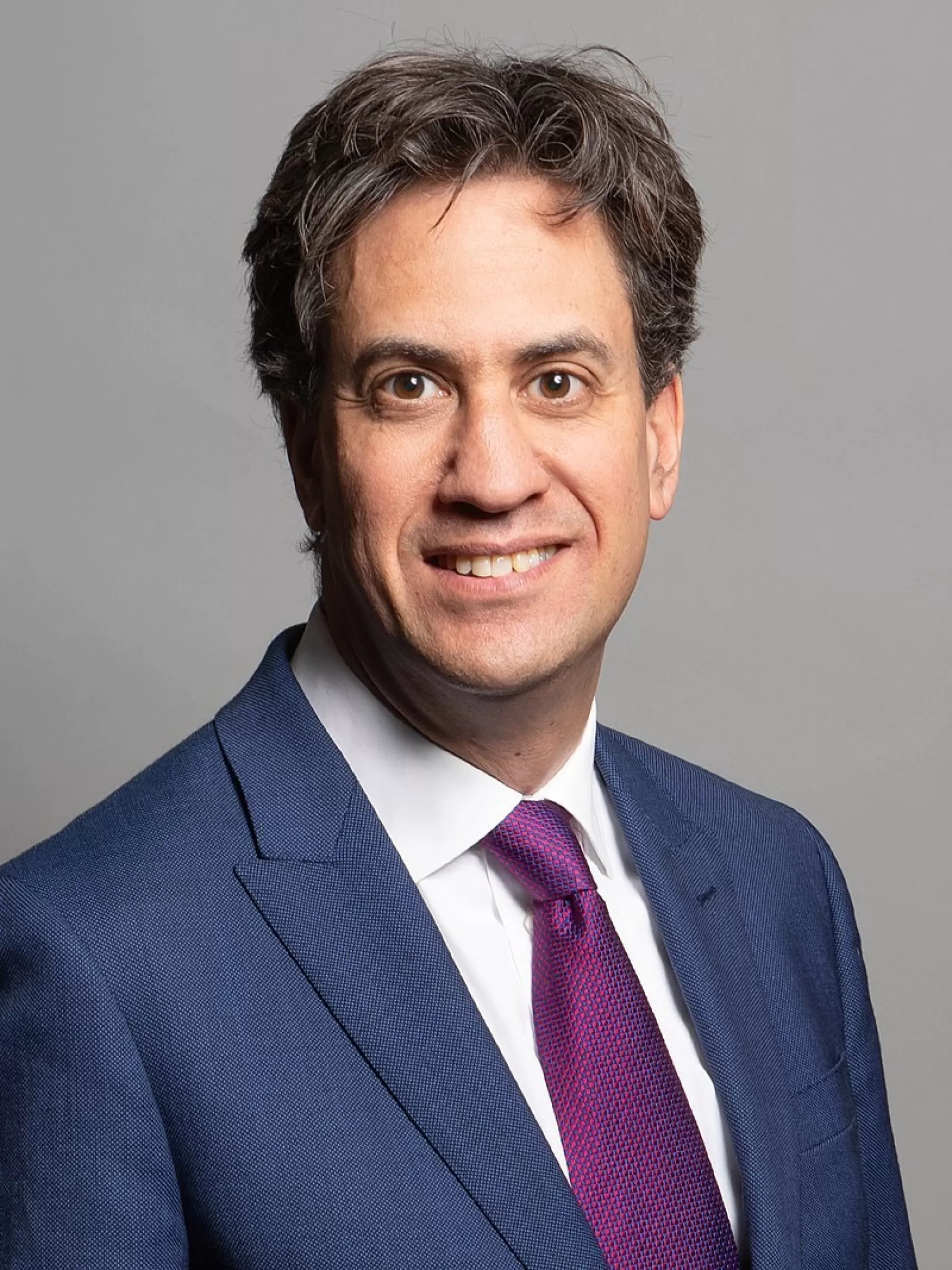Scenario Planning Support from B-People: Profiling The Labour Party's Shadow Cabinet
INTRODUCTION
If you have been keeping up to date with the news recently, you will have seen the turbulence within British Parliament. Liz Truss resigned as Prime Minister after an attempt to impose radical right-wing free market economics was effectively rejected by financial markets, leading to a damaging loss of confidence in the government’s economic competence. Truss’s period in office represents the shortest tenure of any Prime Minister in British history (50 days).
Following Liz Truss’s resignation, Rishi Sunak became the UK’s first Hindu Prime Minister, formally appointed on Tuesday 25 October 2022, and also the country’s fifth conservative prime minister in six years. Sunak quickly formed a new Cabinet in an attempt to unify several different factions in his divided party. He now hopes to usher in a period of government stability and turn around significant polling gains made by the Labour party during the preceding 12 months.
The next general election is scheduled to be held no later than January 2025, but the odds of an early general election have increased significantly and public opinion has certainly been moving assertively in that direction since the ill-fated Mini-budget. If a new Sunak-led government also proves unable to govern reliably, even a reluctant government may ultimately be given no choice but to concede an early general election in the face of intense public and media pressure.
Given where things are, we thought it might be helpful to our network to share a recent research piece, completed as part of our own scenario planning, profiling the most influential players within the Labour Party’s current Shadow Cabinet.
It’s not too difficult to find profiles of any serving Cabinet irrespective of which party is in government (we’ve included the BBC’s latest profile of Rishi Sunak’s new team here), but it always seems much harder to find anything on the Opposition Shadow Cabinet. That might not be so relevant in times of stability, but that’s hardly the case right now. So, we felt it prudent to have a look at this team now given they could form the core of a new government rather sooner than any of us might have anticipated a few weeks ago. We like to try and get ahead of things if we can. We’re sure you do too.
So, this piece profiles the most influential Labour Shadow Cabinet members, along with those Shadow Ministers most responsible for policy areas affecting Business and Work. We’ve also included brief commentary aiming to elaborate on the policy direction of Starmer’s prospective government in some business-relevant areas, should they come into power at the next election.
We hope it’s helpful. Happy reading!

KEIR STARMER
Position: Leader of the Opposition | Age: 60 | MP for Holborn and St Pancras
Keir Starmer was born to working class parents in Surrey, attending Reigate Grammar School which at the time was not fee-paying. He became a young member of the Labour Party in his teenage years. After completing law degrees at both the University of Leeds and Oxford, he became a high-profile human rights lawyer, and immediately before becoming an MP he held the prestigious role of Director of Public Prosecutions. Starmer became a Member of Parliament in 2015, and was quickly promoted into the Shadow Cabinet under Jeremy Corbyn. After Corbyn’s resignation in 2019, Starmer was elected to lead the Labour Party with his 10 electoral pledges.
Starmer is seen to be on the ‘soft left’ of the Labour Party which lies between the Corbynite left and Blairite ‘New Labour’ politics. Often describing himself as a socialist, he has written for ‘Socialist Alternatives’ and ‘Socialist Lawyer’ publications, and has promoted social ownership and investment into the UK’s public services. Some describe his views as ‘red/green’ as he promotes a mix of anti-austerity and environmental policies, while others point to his patriotic political tendencies. As leader of the opposition, he has tended to take a more neutral position on contentious issues, aware of the possible electoral damage of promoting a too overtly left-wing agenda.
Interesting fact: Starmer is a vegetarian, claiming that it’s better for himself and the environment.

ANGELA RAYNER
Position: Deputy Leader of the Opposition | Age: 42 | MP for Ashton-under-Lyne
Angela Rayner was born and grew up on a council estate in Stockport Greater Manchester, attending Avondale, a state secondary school, before leaving pregnant at 16 without any qualifications. Later, she learned sign language and got a social work qualification, before working as a care worker in her early twenties. Following this, Rayner became a Labour councillor and a senior regional Trade Union official for UNISON. Since becoming an MP in 2015, Rayner has supported left-wing Labour candidates for leadership, including Corbyn in 2016 against Owen Smith - this led to her serving in Corbyn’s Shadow Cabinet. She supported Rebecca Long-Bailey in 2020, ironically against Keir Starmer in whose team she now serves.
Rayner identifies as a socialist, but highlights the need for political and ideological pragmatism. In her words, “ideology has never put food on my table”. Furthermore, Rayner maintains a hard-line stance on law and order, voicing her preference for police to use forceful methods against criminals. She has gained notoriety for her direct communication style, not holding back in her passionate verbal attacks on tory MPs.
Interesting fact: Rayner asks Hansard transcribers not to correct her speeches for informal grammar as she believes these are simply an authentic part of her persona and should be left on record.

RACHEL REEVES
Position: Shadow Chancellor of the Exchequer | Age: 43 | MP for Leeds West
Reeves was born in Lewisham, the daughter of two teachers, and joined the Labour Party at 16 due to the influence of her parents. After attending Cator Park School for Girls (a state school), she began studying Politics, Philosophy and Economics at Oxford. She then specialised in Economics and completed a Master’s degree in the same. This led her to work as an economist for the Bank of England, the British Embassy in Washington DC and latterly at Halifax Bank of Scotland. It is also known that Reeves once turned down the offer of a job at Goldman Sachs, despite the knowledge it would be far more lucrative than a career in politics.
Her political career began in 2010 with her becoming an MP, backing Ed Miliband for Labour leadership. She was very critical of Corbyn’s tenure as Labour leader. Reeves orientates to the centre or centre-right of Labour politics, remaining a member of the right-leaning Labour group ‘Progress’. Her economic policies in opposition have tended to focus on competence over ideology, with her suggesting conditionality on long-term state benefits, and claiming to be tougher than the Conservatives in reducing the 2015 Benefits Bill. She’s also expressing concern about the effects of mass immigration, saying that voters’ concerns about immigration and lack of control over their lives risk “exploding” on to the streets if they remain unaddressed.
Interesting fact: Reeves is a huge chess advocate, once being the under 14s girls’ chess champion, frequently challenging children in her constituency, and claiming that it helped her prepare for male dominated working environments.

PAT McFADDEN
Position: Shadow Chief Secretary to the Treasury | Age: 57 | MP for Wolverhampton South East
McFadden was born near Glasgow, the son of two Irish immigrants, and went to the Glaswegian state school, Holyrood Secondary, in his teenage years. Remaining in Scotland, McFadden chose to attend the University of Edinburgh to study Politics. He became chair of Scottish Labour Students during this time. Following this, McFadden became a researcher for Labour’s Scottish Affairs spokesman Donald Dewar and a subsequent speech writer for John Smith.
McFadden became an MP in 2005, and since then he has held several business related roles including Minister of State for Business, Enterprise and Regulatory reform. Politically, McFadden is on the centre-right of Labour, being associated with the centre-right party group ‘Labour First’ which aims to counter the Labour left, representing pro-NATO, pro-United States and pro-nuclear stances. He was also critical of Corbyn’s politics, for example condemning the view that terrorism is always a reaction to Western interference.
Interesting fact: McFadden’s Scottish heritage remains a key part of his identity, and he is a keen Celtic FC supporter.

DAVID LAMMY
Position: Shadow Secretary of State for Foreign, Commonwealth and Development Affairs | Age: 50 | MP for Tottenham
Lammy grew up in Tottenham in a poor Guyanese Christian family, with his father leaving the family when he was 12 years old. At the age of 10, Lammy was awarded a choral scholarship to sing at Peterborough Cathedral and attend The King’s School (private). He represents the first black Briton to study at Harvard University where he studied Law before practicing as a barrister and later an attorney at Lincoln’s Inn. Following his time here, he was employed as an attorney at Howard Rice and D.J. Freeman respectively. Lammy joined Parliament in 2000 when he was just 27 years old, making him the youngest serving MP at that time. Blair appointed Lammy as Parliamentary Under-Secretary of State in the Department of Health in 2002, before holding several other senior roles.
Despite nominating Corbyn for Labour leadership in 2015 due to personal friendship, Lammy was a strong critic of his leadership, in particular his position on antisemitism. During the Brexit campaign, Lammy became associated with passionate pro-EU politics, and he is considered a moderate within Labour. Politically, Lammy has always been vocal in highlighting and calling out racial injustice but he rarely speaks on economic policy. In an interview with Alister Campbell he did once voice his scepticism of ideological economic policy, saying “will socialism work? I don’t know”.
Interesting fact: Lammy is known for his contentious remarks, for example criticising Comic Relief for perpetrating problematic stereotypes of Africa. Comic Relief subsequently committed not to send celebrities to Africa, nor bias the portrayal of Africa with images of starvation or critically ill children.

YVETTE COOPER
Position: Shadow Home Secretary | Age: 53 | MP for Pontefract & Castleford
Cooper was born to a working-class family in rural Alton, with her father formally the General Secretary of the Prospect Trade Union. Her first job was picking fruit for £2 an hour, where she learnt to drive a tractor. Cooper attended Eggar’s School (state) before completing A-Levels at Alton College. She went on to study Politics, Philosophy & Economics at Oxford University, where she won a scholarship to study at Harvard to specialise in Economics. Her career began in economic policy research for politicians including former Labour leader John Smith, then Bill Clinton, before becoming an MP in 1997.
Yvette Cooper served under successive Blair and Brown governments, ran against Corbyn in the 2015 leadership election, and has held senior Shadow Cabinet roles since. Her political stance is often said to be intelligent, rational and well-balanced as opposed to ideological. Some say she fills an important role representing the ‘radical centre’, driven by facts and tangible results. In her leadership campaign she proposed the introduction of a 50p top tax rate, and has always taken the position that Labour was economically prudent when in office when confronted.
Interesting fact: Cooper is the first British Government Minister in history to take maternity leave, and is often seen to represent the ‘family’ and ‘human’ face of politics.

JONATHAN REYNOLDS
Position: Shadow Secretary of State for Business and Industrial Strategy | Age: 42 | MP for Stalybridge & Hyde
Reynolds was brought up in Sunderland during the 1980s, with a “culturally Labour” upbringing but feeling politically distanced from Westminster. He attended a local comprehensive school in his youth, before doing his A-Levels at the City of Sunderland College. Following this, Reynolds studied Politics & Modern History at the University of Manchester, before working for the MP James Purnell for 4 years, becoming a Labour councillor and finally training as a solicitor. Becoming an MP in 2010, Reynolds served within Ed Miliband’s Shadow Cabinet in a variety of roles. He also served as the Shadow City Minister under Corbyn despite coming from different ideological traditions.
Politically, Jonathan Reynolds orientates himself as a Labour moderate, and he has always been on the pro-business side of the party. He remains popular in The City as he pushed for a Brexit deal favourable to financial markets. Despite his distancing from traditional socialist orthodoxy, Reynolds holds some radical policy views. For example, promoting universal basic income (a non-means tested alternative to universal credit) and supporting nationalisation of the railways. He describes himself as radical but credible.
Interesting fact: Reynolds is outspoken in his critique of the UK’s political system, pushing for proportional representation to replace the UK’s current voting system, as well as the abolition of the House of Lords.

WES STREETING
Position: Shadow Secretary of State for Health and Social Care | Age: 39 | MP for Ilford North
Streeting grew up on a council estate in London’s East End, the son of teenage parents. He was particularly close to both his grandparents, with his maternal grandfather described as intellectual and left-wing, and his paternal grandfather a traditional working-class Conservative. After attending the comprehensive Westminster City School, Streeting went onto study history at Cambridge. He was very active in the student Labour movement, winning presidency of the National Union of Students in 2008, and becoming a Labour councillor in 2010. Wes Streeting came out as gay in his second year of university which he reports caused him difficulty due to his devout Christian faith. His sexuality led to him to finance LGBT Labour.
Wes became an MP in 2015. As an outspoken Corbyn critic, Streeting is considered on the right of the Labour Party and is unpopular among the far-left. To this end, he takes a relaxed stance towards the private sector and believes left-wing Labour politics are unelectable and non-viable. He also takes a bullish but pragmatic stance on policing and defence and remains sceptical of uncapped immigration, but does not consider himself a ‘Blairite’.
Interesting fact: Streeting’s maternal grandfather was friends with the Krays and both his maternal grandparents served time in prison for their involvement in organised crime.

JONATHAN ASHWORTH
Position: Shadow Secretary of State for Work & Pensions | Age: 44 | MP for Leicester South
Ashworth was born and raised in North Manchester, attending various state schools before studying Politics and Philosophy at Durham where he served as the National Secretary of Labour Students. Ashworth is considered one of Westminster’s professional politicians, working in Labour politics throughout the majority of his professional life. This includes roles such as the Economics & Welfare Policy Officer, Special Advisor to the Treasury and trade union relation roles.
During the COVID pandemic, Ashworth was Shadow Health Secretary, giving him a very significant role while in opposition. Politically, Jonathan Ashworth does not associate with any particular wing of the Labour Party. However, he did back Corbyn in the 2016 leadership election. In 2019 he supported newcomer Lisa Nandy.
Interesting fact: Ashworth’s father suffered from alcoholism, which he commonly refers to when discussing his ambition for alcoholism prevention measures in public health.

JOHN HEALEY
Position: Shadow Secretary of State for Defence | Age: 62 | MP for Wentworth & Dearne
Healey was born in Wakefield, where he went to the comprehensive school Lady Lumley’s until he moved to York to attend the independent fee-paying school St Peter’s. After this, Healey pursued Social and Political Science at Cambridge. His early career saw him write for the internal Parliamentary publication ‘House Magazine’ and subsequently work in various roles throughout the charity sector.
Healey became an MP in 1997 and held a portfolio of highly regarded non-ministerial roles under Blair’s government. Healey does not associate with any particular wing of the party but he did vote against Corbyn in 2015 and 2016, while supporting Starmer for Labour leadership in 2019. Policy-wise, Healey is very vocal on issues of housing, criticising the Conservative’s record on homelessness. He also believes the minimum wage should be the same for all ages.
Interesting fact: Healey was awarded £54,000 from legal action against the UKIP MEP Jane Collins after she claimed that he knew about child exploitation in Rotherham but did nothing to intervene.

BRIDGET PHILLIPSON
Position: Shadow Secretary of State for Education | Age: 38 | MP for Houghton & Sunderland South
Phillipson was born and grew up on a council estate in Tyne and Wear. Here she went to St Robert of Newminster Catholic School. She joined the Labour Party aged 15, and studied Modern History at Oxford. Here she was elected to co-Chair Oxford University’s Labour club. Following this, she managed a women’s rights charity and entered politics in 2010 as an MP.
She was quickly promoted to senior positions within opposition, including the Opposition Whip between 2013-15. Bridget feels MPs should not forget to keep a clear focus on local issues and she is notably active around feminist politics. She is also an unapologetic fan of New Labour, sitting on the centre-right of the Labour party and voting against left-wing candidates in Labour leadership elections. As a moderate, Phillipson is an advocate for fiscal discipline and well-considered spending commitments instead of ideological left-wing monetary policy.
Interesting fact: Bridget Phillipson is a Roman Catholic and has consistently voted in line with her faith, for example against assisted dying.

ED MILIBAND
Position: Shadow Secretary of State for Climate Change and Net Zero | Age: 52 | MP for Doncaster North
Miliband was born in London, the son of two Polish Jewish immigrants, and in his youth moved between Leeds, the United States and London. After attending various comprehensive schools, Miliband worked as an intern for the well-known left-wing Labour figure Tony Benn before studying Politics, Philosophy & Economics at Oxford. After working in several media and research roles with Labour politicians, Miliband became a special advisor to Gordon Brown, subsequently taking the role as an economic advisor with responsibility for directing the UK’s long-term economic planning.
In 2005, Miliband became an MP and he was given several senior cabinet roles under Blair and Brown. With the help of the Trade Unions, he won the Labour leadership election in 2010, where he served as Leader of the Opposition until 2015. Ed Miliband describes himself as a socialist, associating with the soft left of the Labour party, and is overtly progressive on issues of gender and sexuality. Some economic policies Miliband supports include a 50% top tax-rate, putting limits on top salaries, a living wage policy and reducing / abolishing university tuition fees. Interestingly, Miliband claims he has actually become more left-wing the older he has become.
Interesting fact: Miliband’s father was a Marxist, and both his parents survived the Holocaust after being protected by Catholic Poles.
ANALYSIS & EXPECTATIONS
Keir Starmer’s cabinet represents a marked shift in relation to the Corbyn years. Starmer has included a much wider variety of ideological traditions in his cabinet, with the exception of the far-left. No members of the left-wing Labour Party group the Socialist Campaign Group can be found in his cabinet, which many believe was an obvious move to position his party on the centre or centre-left of British politics.
Competence also seems to be a general theme of Starmer’s shadow cabinet. Several notorious Labour Party veterans, known for their ability to get things done have been put into key positions. These include Yvette Cooper, Wes Streeting, Jonathan Ashworth and Pat McFadden. These individuals may not be known for their distinct ideological conviction, but they are known to be competent political operators. It appears that the new Labour Shadow Cabinet has positioned competency and economic policy constraint above any inclination to present an ideologically oriented cabinet.
Business
It is interesting to note that those individuals in positions more focused on the economy (such as the Shadow Chancellor, Secretary to the Treasury and the Business Secretary) position themselves on the centre-right of the Labour Party. This might infer a move away from traditional left-wing economic policies of regulation, tax and high spending, and a move towards a pro-markets stance which, as we’ve seen after the mini-budget, values restraint in spending. Rachel Reeves (Chancellor) has worked in finance prior to entering politics and Jonathan Reynolds (Business Secretary) is popular in The City due to his pro-finance attitude.
Business leaders and investment firms are already making clear that they would like to talk with Labour Shadow Cabinet officials. The hostility between the Labour Party and business which existed under Jeremy Corbyn has gone and Labour look to be rebuilding their reputation under Blair/Brown as generally being supportive of business.
Labour’s annual 2022 conference in Liverpool supports this assertion, with a noticeable business presence (for example the Bloomberg event with over 600 business leaders present) and speeches from Labour MPs highlighting the role of business in changing society for the better. A relationship (or social contract) between business and government was a key theme at this conference, emphasizing responsible business (as opposed to restrictive government regulation) as a means to achieving social and environmental goals.
Beyond this, Jonathan Reynolds has written about a partnership across business, public services, civil society and trade unions, instead of seeing these as separate and unrelated entities. All of these stakeholders are said to be jointly responsible for an industrial strategy focusing on four key missions: delivering clean power by 2030, harnessing data for the public good, caring for the future and building a more resilient economy. Long-term resilience instead of short-term ‘shock’ growth is seen as key for this.
Trade Unions
The relationship between trade unions and the Labour Party comes as no surprise. Keir Starmer managed to gain the support of Unison (the UK’s largest trade union) and four other influential unions for his Labour leadership campaign in 2020 and this comes with an expectation that he would be sympathetic to their aims in office. To this end, he has been supportive of strong trade unions playing a role in the UK’s shift towards a green economy and spoke to the annual trade union conference in 2022.
However, Starmer is also aware of the possible electoral implications of being perceived ‘in the unions pocket’. One clear move away from the unions was Starmer’s insistence that Shadow Cabinet members should not attend picket lines for striking union workers. Both he and David Lammy have even spoken against the rail strikes, saying they do not support them. He went as far to sack Sam Tarry from Labour’s front bench after he appeared on a picket line with striking rail workers. In terms of what this means for unions, it could be the case that the Labour Party’s position is one which takes a non-hostile but firmly independent stance towards them.
That said, it’s highly unlikely Labour will completely cut ties with the unions and vice versa, and it seems likely they will ensure union voices and concerns are heard and addressed in the development of a green economic strategy, and any push for ‘Responsible’ business. It’s worth noting that the Labour Party’s commitment to ‘safe work’ in their New Deal for Working People commits their party to repeal anti-trade union legislation, including the 2016 Trade Union Act, as they deem it as imposing unnecessary restriction on trade union activity. Conversely it looks likely that Starmer’s Labour will stand against assertive union action and take a non-supportive position on unrealistic wage demands.
Workplace Rights
When it comes to the workplace, the Labour Party has pushed several policy positions to promote fairer wages and working conditions. Primarily, Starmer has voiced his policy on the minimum wage, claiming that he is committed to linking minimum wage to rises in the cost of living. Given the current rate of inflation was 11.1% in October 2022, this would suggest Starmer is willing to increase the minimum wage to £11+ (up from the current rate of £9.50 for those aged 23 and over). One year ago, Starmer did pledge a £10 minimum wage (at least), but refused to respond to the union demands for a £15 minimum. This suggests the Labour Party would increase minimum wage requirements moderately in line with inflation, but not significantly. Regarding further changes, the Labour Party have also committed to increasing sick pay, as well as abolishing zero hours contracts.
Finally, other adjustments to workers’ rights made by a Labour government might likely to be focused on equalising gender inequalities in the workplace. 2021 commitments to gender based issues included: the right to flexible working and to switch off from work, to end outdated policy assumptions that the mother looks after their children while the father works, outlaw making a mother redundant from notification of pregnancy until 6-months after their return, modernise equal pay laws through increased transparency of male wages and reinstating gender pay gap reporting (while also introducing ethnicity pay gap reporting), plus an overhaul of the shared parental leave system. The Labour Party has also pledged a commitment to creating 100,000 new apprenticeships (for 16–24 year-olds), a key social commitment to youth employment which is likely to benefit those businesses who endorse such principles through action.
Environment / Sustainability and ESG
Placing Ed Miliband in a role focusing specifically on Climate Change is also worth noting. Miliband has always been passionate in his environmental credentials and is a fairly radical Parliamentary agitator. Starmer is also known to put the environment at the top of his policy agenda for government. From this, it could be inferred that environmental considerations are going to flavour many decisions from a Labour government and it may be the case that they believe business to play a large part in delivering any national green strategy Britain might pursue.
From a business perspective this might suggest a doubling down on ESG efforts as a means of voluntary alignment with government policy. Proposed Labour policies such as a windfall tax on energy companies and the creation of a new state-owned green energy company (GB Energy) may even imply that Starmer’s Labour is more willing to mandate economic measures on companies considered to be out of alignment with their green agenda, whilst providing economic incentives (eg. state funding) as a means of encouraging engagement.
Angela Rayner also opened up the 2022 Labour Party conference with a new national procurement plan. This is a policy which makes social value mandatory in all government contracts, with a requirement for ministers to report back to the Cabinet Office and parliament on how departmental suppliers are meeting these values. Part of this requires companies awarded public contracts to treat their workers fairly and deliver for their service users. It also requires SMEs to be given contract opportunities, tightens up supplier waste by clawing back lost public money and ending failing contracts, and requires full transparency about contracted companies’ delivery and performance. Clearly the ‘S’ in ESG could be more important than ever when it comes to potential future governmental legislation.
It remains to be seen how stringent government regulation on ‘green’ issues might be if Labour comes into power but so far there has been little mention of it. This notwithstanding, all the signs suggest a marked shift towards accelerated carbon reduction measures and incentives across the full spectrum of policy. What is clearer is Labour’s commitment to social equality and community value through their procurement policies. Businesses who currently work with government, or who may be hopeful to win government contracts in the future should ensure they can prove their ESG credentials in this regard.
Visit our Research & Opinion section for a PDF version of this article and more free downloads

+44 7444 029049 | info@b-people.net
© B-People Group Ltd. 2025
London HQ: B-People Group Ltd, China Works, Black Prince Road, London SE1 7SJ, UK
Reg in England: 11059238 | VAT No: GB 285 9155 60 | Badan Lodge, Cuilfail, Lewes BN7 2BE


